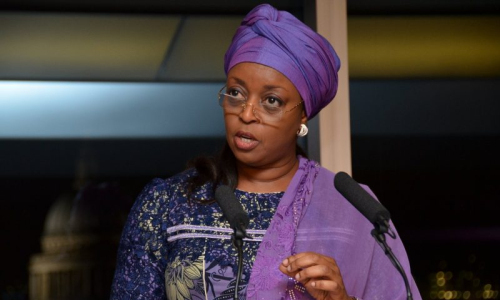COURTROOM NEWS 24/10/2023
Court Shifts Diezani’s Suit Against EFCC to December 7

On Monday, a Federal High Court in Abuja postponed the hearing of a suit filed by Diezani Alison-Madueke, Nigeria’s former minister of petroleum resources, challenging the orders obtained by the EFCC for the final forfeiture of her seized assets.
The matter, which was scheduled on number 15 on the cause list, could not proceed due to the absence of the presiding judge, Justice Inyang Ekwo.
The court subsequently fixed December 7 for a hearing of the suit marked: FHC/ABJ/CS/21/23.
Justice Ekwo had on June 21 fixed Monday, October 23, for the case hearing after the lawyer who appeared for Alison-Madueke, Benson Igbanoi, and EFCC’s counsel, M.D. Baraya regularised their processes in the suit.
The anti-corruption agency had planned to conduct a public sale of all the assets seized for being proceeds of crime, as ordered by courts, to be permanently forfeited to the Federal Government. The auctioning exercise, conducted on the seized assets believed to include Diezani’s property, started on January 9.
The immediate-past chairman of the EFCC, Abdulrasheed Bawa, had revealed that $153 million and over 80 properties had been recovered from Alison-Madueke.
She was alleged to have escaped to the United Kingdom (UK) and remained there after her exit from public office as the petroleum minister, an office she held between 2010 and 2015 under the administration of former President Goodluck Jonathan.
But the ex-minister, in her suit, sought an order extending the time within which to seek leave to apply to the court for an order to set aside the EFCC’s public notice issued to conduct public sale on her property.
In the motion marked: FHC/ABJ/CS/21/2023 dated and filed on January 6 by her lawyer, Mike Ozekhome, the former minister sought five orders from the court.
The former minister, who argued that the various orders were made without jurisdiction, said these “ought to be set aside ex debito justitiae.”
She said she was not given fair hearing in all the proceedings leading to the orders.
“The various court orders issued in favour of the respondent and upon which the respondent issued the public notice were issued in breach of the applicant’s right to fair hearing as guaranteed by Section 36 (1) of the 1999 Constitution, as altered, and other similar constitutional provisions,” she said.



